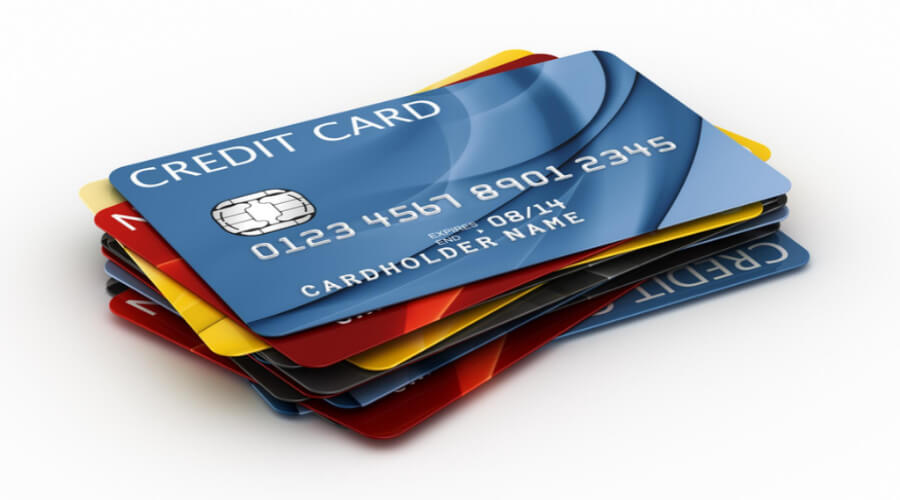Credit card companies cannot allow you to open a credit card in someone else’s name. Attempting to do so is identity theft, a crime, as you will be trying to use someone else’s name, SSN, and personal information. So, open a credit card in your name or get the owner to add you as an authorized user of their credit card.
Key Takeaways
- If you try to open a credit card using other people’s name, SSN, address, etc. then it will be considered as a identity theft
- The three most common types of identity theft are financial, medical and online
- In the USA, identity theft is considered as a felony
- If someone, opens a credit card in your name then you should immediately contact the fraud department of the credit card company
- If you are a victim of identity theft then you should report it to Federal Trade Commission (FTC)
What To Do If Someone Opens A Credit Card In Your Name

The cases of identity theft are reported in the US year in year out. If you fall, victim, it doesn’t mean you have allowed it to happen. The criminals do anything possible to use your details to open a card to commit fraud. So, if you get your credit card statement and your scores are dropping unnecessarily, there is an unauthorized account or missed payments, you need to act immediately.
Here are 5 crucial steps to follow:
Step 1: Contact The Fraud Department Of Your Credit Card Company
Contact the fraud department of your credit card company immediately you notice an unauthorized account in your credit card report. Do not use any number from the emails you receive from those purporting to be your issuers to avoid falling into phishing scams.
Instead, contact your issuer through the customer service number indicated on their website. Keep following up to ensure the issuer restores everything and record every detail from the representative to know the next course of action.
Investigations can take time to conclude, so it is best to request your card issuer to close or freeze the account as they continue with the process. This way, the thief cannot continue using the card to spoil your credit card scores and rack more debt.
Step 2: Report The Identity Theft To Federal Trade Commission (FTC)
FTC enforces antitrust laws and protects you as a consumer against identity theft. Contact their consumer response center and report the incident. Though the FTC does not bring criminal cases, they will provide you with a report that helps to resolve the issue. For instance, through the report, you can get a credit freeze free of charge.
The FTC can as well refer you to appropriate private organizations or government agencies for further action.
The information from FTC also helps law enforcement to take action. They have a form used to gather data on identity theft that is useful in pressing charges on those involved.
Step 3: Consider Credit Freeze Or A Fraud Alert
Once you have fallen victim to identity theft, it is best to take proper precautions to prevent the fraudster from opening other credit cards in your name. You can do this through a credit freeze or a fraud alert, as explained below:
Credit Freeze
Before a lender creates a credit account in your name, they must access your credit card report. So, before you even think of notifying them of the identity theft issue, you can freeze your account. This way, lenders will not have access to the reports needed to issue cards in your name.
For the credit freeze to take effect, you must request it with each credit agency, i.e., TransUnion, Equifax, and Experian.
Note that once you freeze your account, you may also be unable to get credit going forward. You can face challenges when opening a utility account, applying to rent an apartment and when searching for a new job. The best thing is always to request a temporary lift when in need of such services.
Requesting for a credit freeze attracts some fee that varies from state to state. However, you can get it for free if you provide a valid investigative report from FTC.
Fraud Alert
There is an initial and extended fraud alert.
Initial Fraud Alert
The initial fraud alert stays on your credit report for 90 days and notifies lenders about possible identity theft. When a credit card application is made under your name, the lenders will not open an account until they contact you for verification. You only need to request an initial fraud alert with any of the three credit agencies, and they will automatically notify the others.
Once the 90 days lapses, the fraud alert is lifted, though you can renew as many times as you want.
Extended Fraud Alert
Unlike the initial fraud alert, the extended fraud alert lasts for 7 years. So, if you want to protect your credit account longer and do not want to keep renewing after every 90 days, go for an extended fraud alert.
For the extended fraud alert to be effected, you must submit a copy of the incident or investigative report you filed with FTC. Lenders, therefore, will not issue any credit card under your name until they contact you and follow the due verification process. In case you feel safer and do not want to continue with the alert for the 7 years, you can stop at any time through any of the three credit agencies.
Step 4: Monitor Your Credit Reports
Once you notice fraudulent activities in your credit card account, it is best to monitor to check any additional frauds. Keenly review the statements in your credit card reports to check the opening date of each one of them and compare it with your records. Ensure the dates match up with those of your legitimate accounts to avoid further harm to your credit scores.
You can get a free copy of your credit report through AnnualCreditReport.com. Each of the three credit agencies is mandated to issue you with one free credit report every year. Plus, you can get an extra free copy if you request a fraud alert. If you have trouble interpreting the report, get a guide from the website of any of the three credit agencies.
Step 5: Dispute Fraudulent Accounts With The Credit Bureaus
It is always best to dispute fraudulent accounts with the credit bureaus to prevent damages to your credit scores. Keep in mind that identity thieves will use the card and not make any payment. This will increase your debt and lower your credit ratings. So, once you inform the police and credit card issuers of the fraudulent activities in your account, use the documentation they provide you with to dispute the issue with the credit card bureau.
You can file the dispute online through credit agencies’ websites. The agency will then contact the credit card issuers to verify the same and continue with the investigation. When investigations are concluded, you will get the report, and the agency will proceed to remove any fraudulent account.
How Might Someone Open A Credit Card In Your Name?
The only way someone can open a credit card in your name is by accessing your personal information. Most identity theft cases reported involve family members who can effortlessly access your social security numbers and use them to open a credit card.
But, non-relatives can as well get hold of your information and use it fraudulently. Check below some of the places someone can access your data:
How Can Someone Access Your Personal Information?

1. Rummaging through public trash dump, business trash, or even your trash for personal data
2. Stealing purses, wallets, or your mail (tax information, new checks, pre-approved credit offers, and credit card and bank statements)
3. Posing by email or phone as a person who legitimately needs your personal information, such as your card issuer, landlords, or employers
4. Stealing your personal information in your home, especially those who stay with you, getting them from unsecured sites online you have used, or accessing the data from personal or business records at work
5. Bribing the inside sources in exchange for your data. For instance, the thief can pay store employees to provide information about you as reflected on any of your credit applications, goods, or services.
Final Words
If you notice any suspicious transactions on your credit card report, you need to act immediately. Someone might have used your name to open a credit card and use it to transact. Though identity theft is a criminal offense, some people dare and want to take advantage of any loophole for selfish gains.
Report the issue to your credit card issuer and FTC. Also, request fraud alerts or credit card freeze as the investigation continues to prevent further damage to your account. But, keep monitoring your account to ensure no more unauthorized accounts are opened under your name.
It is also good to dispute fraudulent accounts with credit bureaus to get them removed and your credit scores restored. For this, you may incur some cost, so it is always best to protect yourself against identity theft, and if it happens, follow the due process to resolve it.
References:
1. https://campinghiking.net/credit/how-to-open-a-credit-card-in-someone-elses-name/
2. https://debtconsolidationsquestions.com/qa/how-do-i-open-a-credit-card-in-someone-elses-name.html
Last Updated on October 8, 2022 by Magalie D.

Magalie D. is a Diploma holder in Public Administration & Management from McGill University of Canada. She shares management tips here in MGTBlog when she has nothing to do and gets some free time after working in a multinational company at Toronto.





